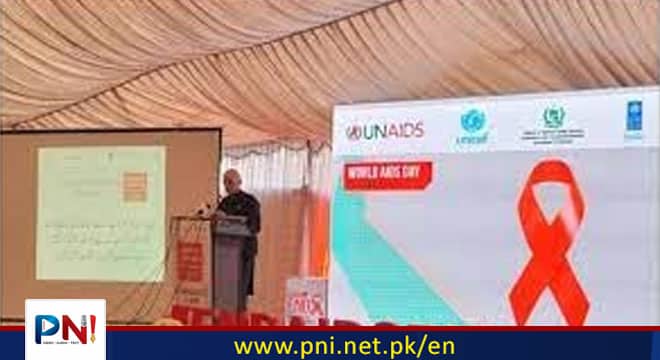ISLAMABAD, Sep 06 (APP): The Program Management Unit at United Nations Development Programme (UNDP) has conducted a two-day interactive workshop and consultation session to sensitize media professionals about HIV/AIDS.
The participants from over 30 media organizations attended the event.
The workshop commenced with an inaugural address by National Program Specialist at UNDP, Dr. Nashmia Mahmood.
Dr. Nashmia Mahmood stressed the crucial role that the media played in shaping societal perspectives on HIV/AIDS.
“Media is not just a mirror reflecting reality, but a powerful tool capable of shaping it. Ethical and sensitive reporting on HIV/AIDS is not just an option, it’s a responsibility,” she said.
She emphasized that the workshop was more than just a training session.
“It is an opportunity to redefine the media’s role in disseminating accurate, compassionate information about a topic that has long been marred by stigma and misunderstanding,” she added.
Breaking down the subject’s complexities, the first session, “Understanding HIV/AIDS and Overcoming Stigma,” was skillfully guided by Mubashir Akram.
He tackled preconceived notions and stigmas about HIV/AIDS head-on, making it a point to elucidate the facts.
“We cannot let ignorance dictate the narrative. Knowledge is the first step to breaking down barriers of stigma,” Akram asserted during the session.
The moral compass for media reporting on the subject was established in the second session, spearheaded by Absar Alam, a senior journalist and former Chairman of Pakistan Electronic Media Regulatory Authority (PEMRA).
Alam urged journalists to adhere to the highest ethical standards while covering this sensitive issue.
“Ethics in journalism is not a passing consideration but an imperative. How we talk about HIV/AIDS matters because words can isolate or integrate communities,” Alam emphasized.
Dr. Arif Saleem took the helm for the third session, “Effective Behavior Change Communication (BCC) Strategies for Humane HIV/AIDS Awareness.”
The segment was an educational tour de force on Behavior Change Communication strategies.
“Effective communication is about relaying facts and shaping perceptions and actions. BCC is our best bet in aligning public perception with reality,” Dr. Saleem pointed out.
Closing the workshop was the fourth session, “Personal Development and Building Empathy on HIV/AIDS,” administered by Dr. Ali Tariq.
He used a mix of anecdotal and academic methodologies to bridge the emotional gap between reporters and the subject they cover.
“Empathy is the missing link in HIV/AIDS reporting. Understanding the human side of the numbers we report on can make all the difference in how the story is told,” said Dr. Tariq.
The two-day workshop involved interactive dialogues, enriching Q&A sessions, and spirited debates.
“The collective wisdom here is a testament to the media’s commitment to understanding and responsibly reporting on HIV/AIDS,” Dr. Mahmood remarked in her closing statement.
The workshop was a part of the consistent effort by UNDP to engage with media professionals on the many facets of HIV/AIDS. By the workshop’s end, organizers and attendees were armed with new insights, best practices, and a fortified commitment to elevating public understanding and compassion towards HIV/AIDS-affected communities.
The workshop was a part of the process in which the UNDP is holding five such activities in the federal and provincial capitals on the issue of increasing sensitivity toward the portrayal of the HIV/AIDS-affected communities in Pakistan.
Follow the PNI Facebook page for the latest news and updates.









